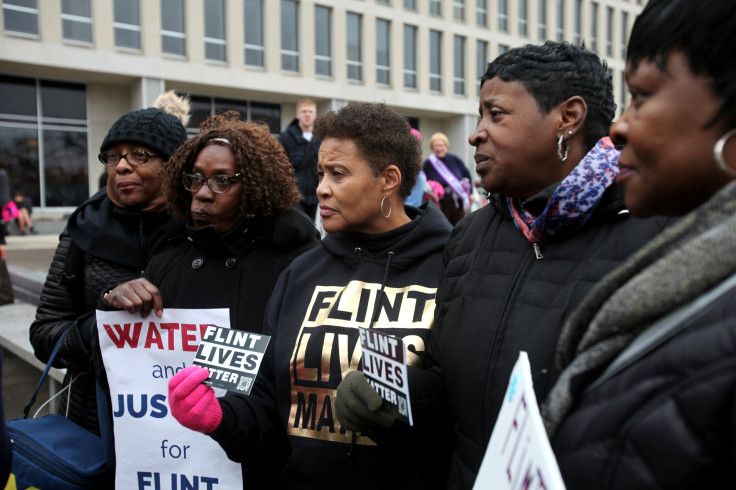Flint Water Crisis Update: Michigan Still Fighting Water Delivery Expansion? Judge Slams Attorney General For Playing Both Sides Of Lawsuit

A federal judge Monday reprimanded Michigan Attorney General Bill Schuette for trying to side with residents of Flint who are suing the state over the city’s lead poisoning crisis as his office fights the very same suit. The scolding came just a day before U.S. District Judge David Lawson is to take up the issue of whether the state has complied with an order to expand water deliveries to Flint residents.
It’s been more than 1,000 days since the city of Flint began drawing water from the Flint River, triggering a lead poisoning epidemic that’s still to be resolved. The city’s water supply was switched from Lake Huron to the Flint River on April 25, 2014, to save money, but the pollutants in the river corroded city and residential pipes, leaching lead into the water supply. City residents were exposed to rising lead levels for 18 months before any action was taken.
Though testing indicates lead levels are falling, residents have been told to use only filtered or bottled water for consumption until further notice. So far, only 600 of the thousands of pipes that need to be replaced have been replaced.
Lawson accused Schuette of “superficial posturing” for trying to file a brief siding with the plaintiffs. The judge noted several assistant attorneys general already had appeared on behalf of the state.
"Superficial posturing does not contribute to the search for an equitable solution," Lawson wrote in a 10-page opinion.
Lawson in November ordered the state to expand water deliveries to Flint residents but the state has been fighting the directive, saying it’s unnecessary, too expensive and a logistical nightmare. A hearing has been scheduled for Tuesday on why the state and city officials have failed to verify whether filters were installed in many homes.
In contrast to last year’s State of the State address when Gov. Rick Snyder apologized profusely for the water debacle, his State of the State address last week barely touched on the crisis. U.S. Rep. Dan Kildee, D-Mich., whose district includes Flint, was outraged.
"It is disgraceful that a city of 100,000 people still doesn't have clean drinking water and the governor could barely devote 2 minutes of his State of the State to Flint. Just 2 minutes dedicated to Flint? Really?" he said in a statement obtained by CNN.
"Shame on the governor for not using tonight to outline additional steps that he is going to take to ensure clean drinking water in Flint. I will not rest until the governor and the state step up to do more to help the city recover from this man-made crisis."
The state put up $28 million last year to deal with the problem while the federal government has put up $170 million.
Gerald Ambrose, who was appointed by Snyder as emergency manager and oversaw the water switch, told a U.S. House committee he never actually talked to Snyder about rising lead levels, dealing instead mostly with state Treasury Department officials during his four months on the job because the focus was the city’s financial condition, the Flint Journal reported Monday. The newspaper said it obtained excerpts from Ambrose’s closed-door testimony in March before the House Committee on Oversight and Government Reform.
Ambrose is one of 13 state officials facing criminal charges stemming from the fiasco.
© Copyright IBTimes 2024. All rights reserved.






















